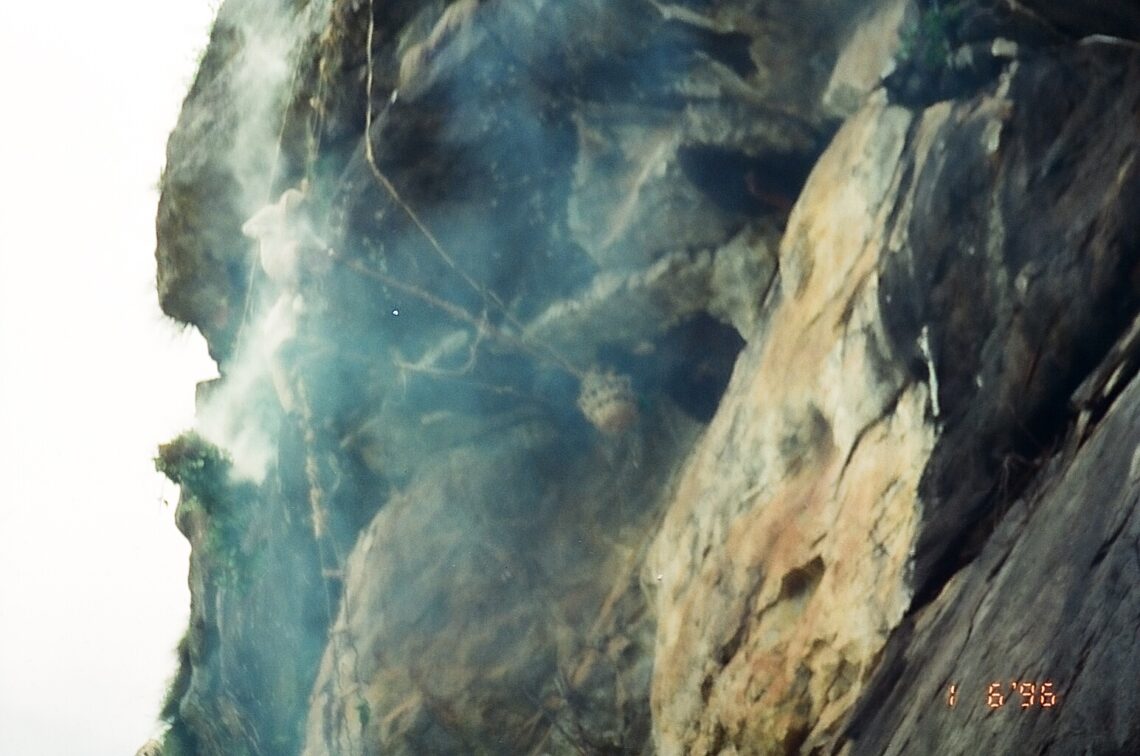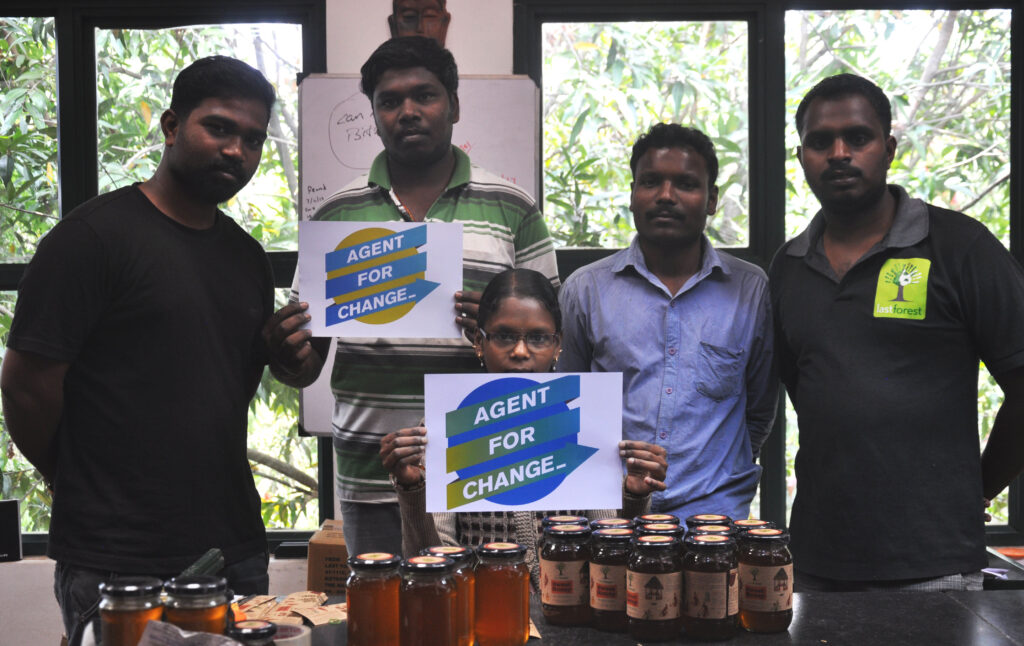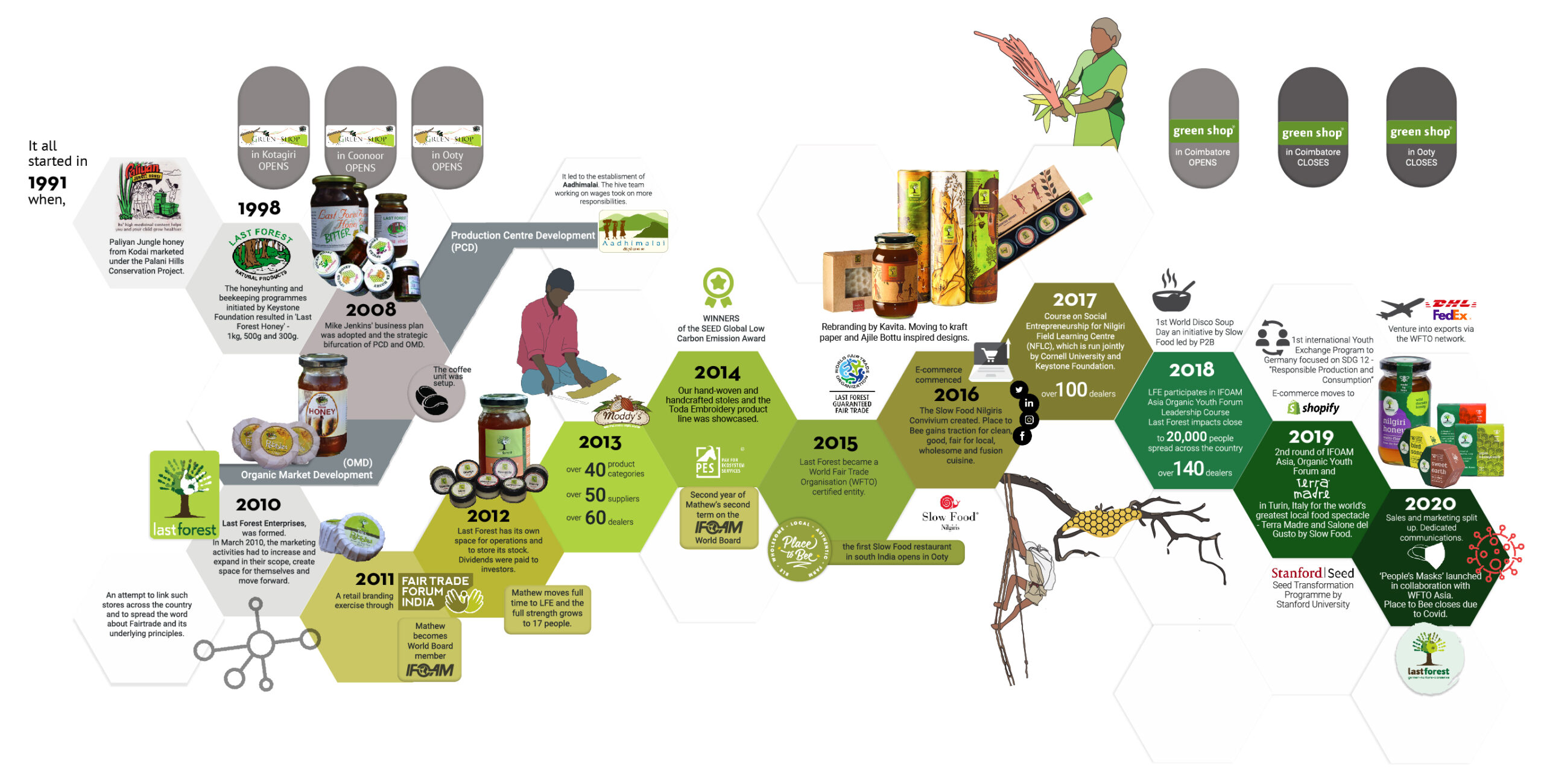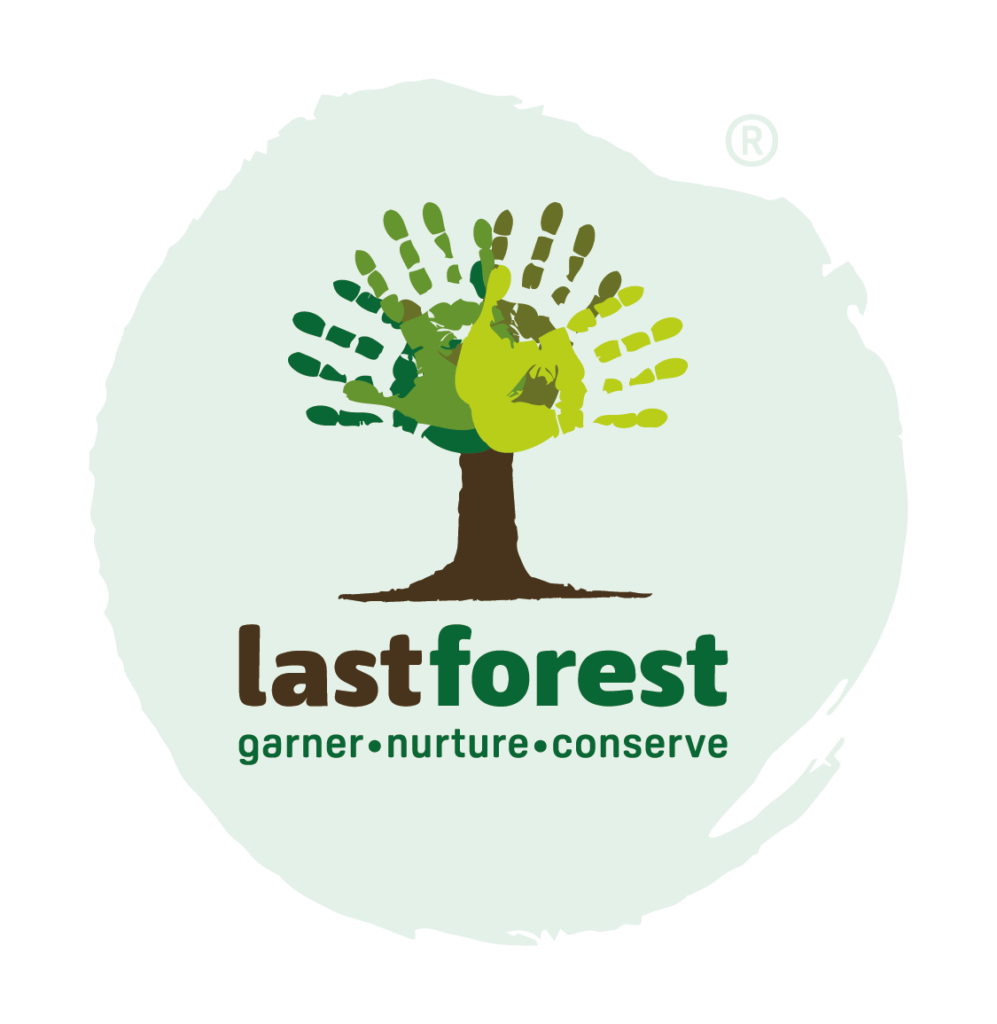A journey to the Nilgiris
Although established as a social enterprise in the year 2010, the basic principles that govern Last Forest can be traced back to the year 1993. A joint expedition to explore the rich hills of the Nilgiris Biosphere led us to the unique and distinct communities who reside in these hill ranges. Majority of such communities are indigenous and form the core of the ecosystem. These communities have been residing in these forests for centuries and have been a major pillar for protection of forest cover and biodiversity. Collection of Forest produce constitutes the primary source of livelihood for the entirety of the indigenous population. No proper research existed on creating and sustaining livelihood opportunities for these indigenous communities. This paved way for setting up of Keystone Foundation in the year 1993, in the hills of Kotagiri, a small town belonging to the Nilgiris. Keystone’s endeavour is to conserve biodiversity by keeping indigenous communities in the middle of such conservation measures while creating sustainable livelihood opportunities. To understand the local livelihood activities and opportunities, we conducted the first ever survey in Tamil Nadu on ‘Honey Hunters’ & ‘Beekeepers’. Through the years we understood that a deficiency in the system of livelihood creation and sustenance was the lack of a market for honey and other forest produce collected by our communities.

In 2010, Last Forest was born as an enterprise that sought to annihilate this deficiency in the system of livelihood creation and sustenance. Thirteen years of accumulated knowledge on traditions and practices related to honey collection had made us focus primarily on Honey and later expand our horizon to include other indigenous produce. Conservation practices cannot exist in isolation from livelihoods and enterprise of the communities that support such conservation. A sustainable method of collection and production needs to be supported by an efficient market opportunity. The value chain cannot exist without a credible market system. By identifying these, Last Forest has since become a space for sustaining livelihoods of indigenous communities by providing a market for indigenous produce. We are proud to be a part of the fair trade and slow food movement that exists around the world.
Each product marketed by Last Forest is carefully curated to ensure that the face and identity of the communities behind the manufacture of these products are put to the forefront. Each product relays an anecdote describing the people behind the collection of raw materials, who add value and bring out the final product. The honey we consume has an entire community that goes through a dangerous, yet robust process to collect this honey. Traditional knowledge pertaining to such collection is passed on from generations amongst indigenous communities. Each member belonging to the Last Forest family understand the indigenous knowledge that goes behind the making of our products.

It is the year 2022 and over the recent years conscious consumerism has given an opportunity for initiatives such as ours to provide our consumers with a wholesome experience. Our consumer is taken through the process of ethical manufacturing and provision of the best quality products. Our guiding principles have been constant since 2010 and now stronger than ever. Conservation of biodiversity is best achieved through sustainable use of existing resources and by keeping the indigenous communities in the forefront of these sustainable practices. The dynamic nature of markets often leaves out traditional indigenous knowledge systems and livelihood practices which lead to their eventual extinction. Hence, we try and constantly work to understand these changes, re-calibrate, and respond to such changes while keeping traditional knowledge systems on sustainable produce intact. Our geographical reach has since expanded from covering just two areas in Tamil Nadu in the year 1995 to covering over areas in ten states in India in the year 2019. We now supply our products to several countries outside of India.

